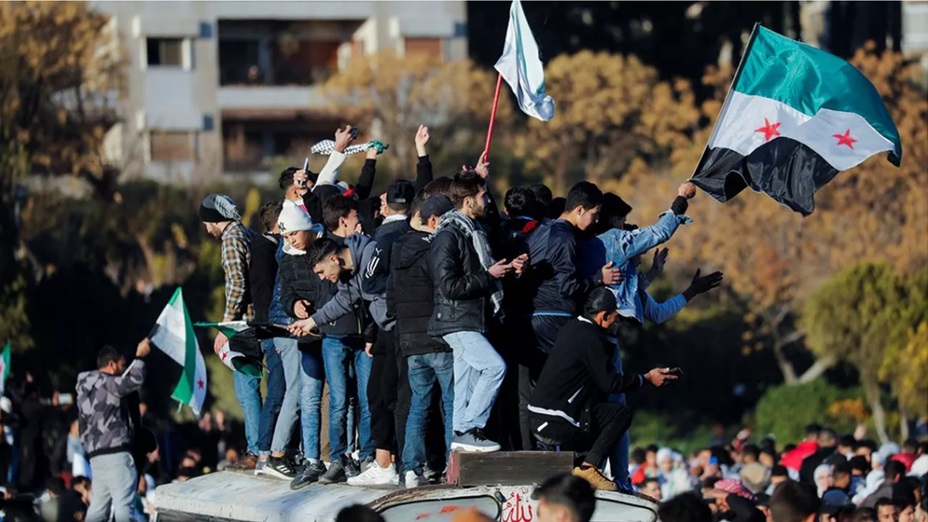Syria's long night, by Mohed Altrad

Tribune - Syria's long night (Opinion column)
By Mohed Altrad (President of the Altrad Group) - Published on 16 December 2024 at 12:45 pm
Syria is going to need time and resources to rebuild itself. Europe has a role to play in the coming process, provided that Syrian refugees are not sent home suddenly, according to Franco-Syrian entrepreneur Mohed Altrad.
Born in Syria near Raqqa, not far from the Euphrates, I came to France after the baccalaureate, just as Hafez el Assad was taking power. I studied, learnt about freedom and set up a business that grew into a very big one. The events that have just taken place obviously affect me: all Syrians, whether born or bred, feel a sense of liberation and pride. Perhaps Syria will finally mean something other than torture and repression. I've long had in my heart the lines of Mutanabbi, one of the greatest Arab poets, who wrote: ‘Here is Damascus, the pearl of cities/ A treasure of knowledge and power/ Its minarets rise like prayers/ Its gardens sing to the rhythm of the rivers’. Rediscovering these gardens is the dream of us all.
All that remains is to come to terms with reality very quickly. The geopolitical issues discussed over the last few days are crucial, as Syria is the scene of a confrontation between regional powers. And the country's future will undoubtedly depend on the intentions of the new leader, Abu Mohammed Al-Joulani (editor's note: who has changed his name to Ahmed Al-Charaa), who brought down the criminal Assad regime. I hope that the former jihadist leader will ‘take the road to Damascus’. Let's remember the Acts of the Apostles and the story of Saul of Tarsus, the future apostle Paul. At the time a fierce opponent of the first Christians, he was on his way to Damascus, but his journey was interrupted by a heavenly vision: ‘Saul, Saul, why are you persecuting me?’ Saul was taken to Damascus, where he not only recovered his sight, but also a new faith. He then became Paul, one of the most ardent apostles of Christianity. Joulani will not convert, but let's hope he keeps his promise not to persecute minorities.
Immense Challenges
This is essential because Syria faces immense challenges. Two major factors must be taken into account: the situation of the population and that of the economy. Anarchy still prevails: there are more or less autonomous zones everywhere, linked to regional powers or jihadist groups. Yet, the influx of refugees remains massive. More than 6 million Syrians have fled their country since the start of the civil war in 2011, including 3.2 million in Turkey and 800,000 in Lebanon. Seven million have left their homes but remain within the country.
A vast majority want to "return home." But where to go? UN-Habitat estimates that more than 350,000 houses and apartments have been destroyed. Nearly 13.6 million residents do not have access to drinking water, hygiene, or sanitation. According to the World Bank, $2.5 billion is needed to rebuild housing. Furthermore, around 96% of the population lives on less than $7 per day. All food value chains must also be rebuilt, which would cost at least $3 billion. As for the economy in general, its situation is disastrous: the World Bank estimates that GDP has declined by 87% since 2011 (from $67 billion to just $9!).
An International Conference for Reconstruction
Under these conditions, several decisions are necessary for Europe and France: first, it is essential to continue examining asylum applications from Syrians in Europe. In the interest of both Syria and Europe, it is important to avoid a massive influx of people into a country that is currently exhausted, where poverty and deprivation will only worsen with the return of refugees. Syria needs time to rebuild. Europeans must not assume that all of Syria's problems can be resolved overnight. The Kurds, in particular, are not in an easy situation.
Next, it is necessary to quickly - but without rushing - organize an international conference for reconstruction. The Turks are on the lookout (shares of major construction companies rose by 10% on Monday following Assad's fall), as are Gulf investors. However, Europe has an important role to play as it possesses significant financial resources and extensive experience in post-conflict management. France is well-liked in Syria. It is up to France to take initiatives to ensure that Europe does not abruptly send Syrian refugees back home. It must also launch a dynamic effort so that the international community can find a way to facilitate - and oversee - Syria’s reconstruction.
The challenges are immense, and the difficulties are countless. However, the prospect of a free Syria, in line with its history, is finally emerging. Let us be present for this historic moment. Let us trust in the strength of the Syrian people. And together, let us build a future of peace.
Mohed Altrad

